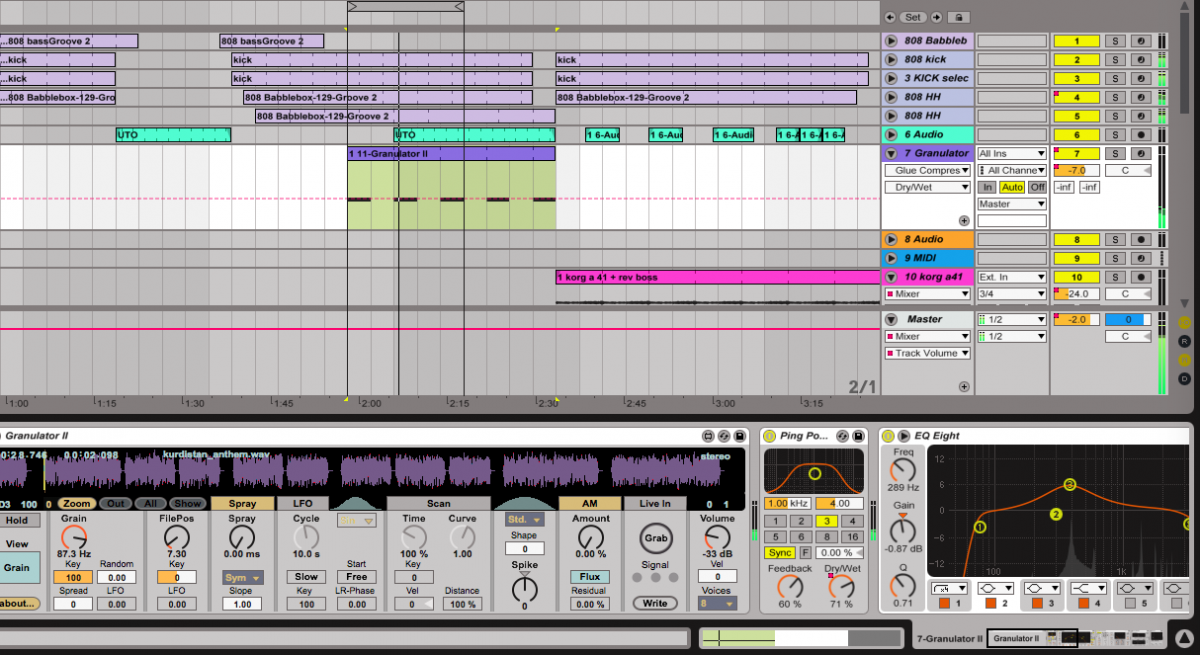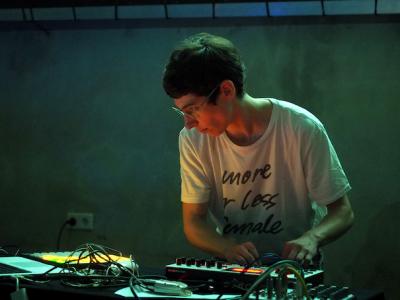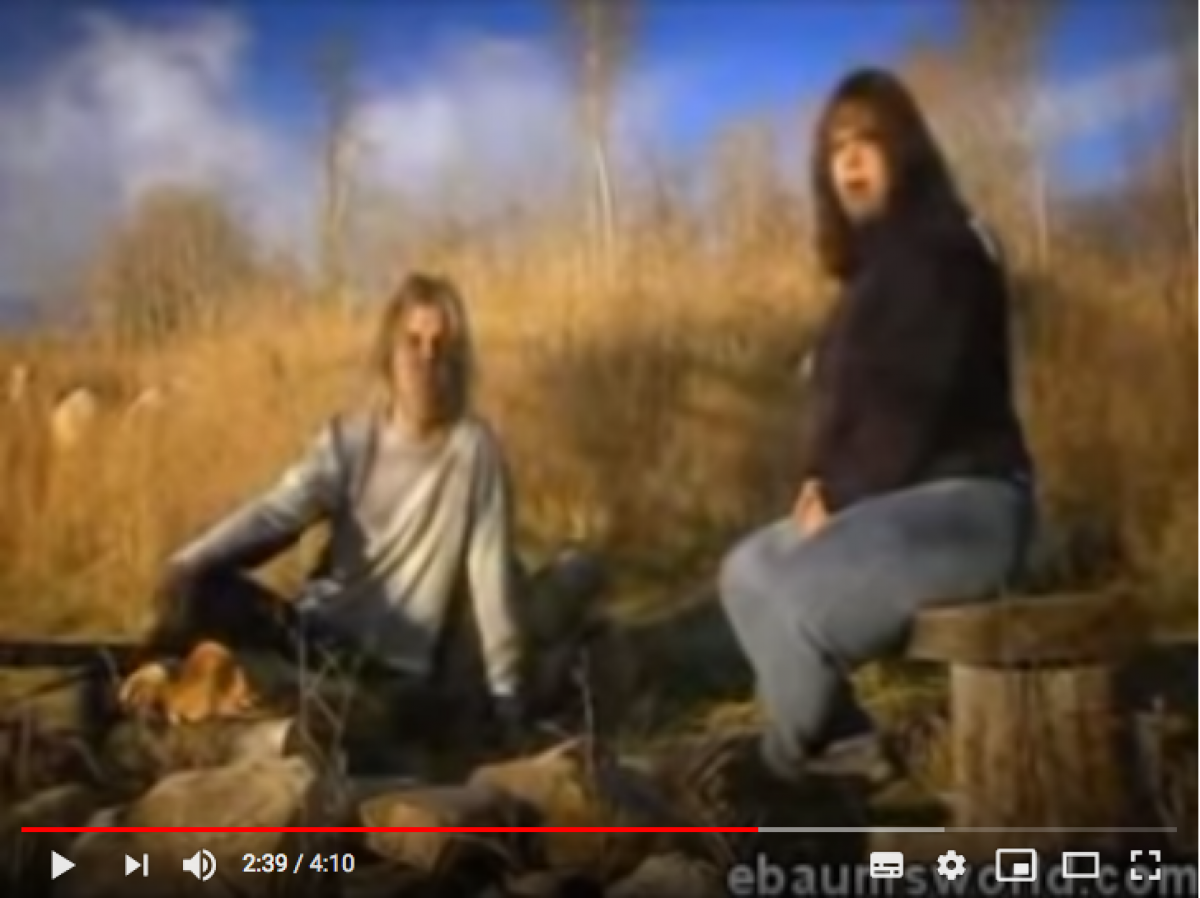Processes of sampling sometimes happen completely hidden for the listener. The samples are not audible at all, audible but not recognizable, or they are not even physically present in the track. Berlin-based producer Kritzkom rarely works with samples and, accordingly, on her 2016 techno track «Inner March for Utopia» synth basses and melodies dominate. But if one digs deeper one can find the traces of a sample of the Kurdish national anthem.
Marine Drouan, the artist behind the moniker Kritzkom, has contributed the track «Inner March for Utopia» to the #Rojava campaign by female:pressure. Back in early 2016, the international women network aimed to raise awareness for the female fighters of the resistance movement taking place in the cantons of Rojava in Northern Syria. In another sequel of the sampling stories I have already reported on a track from the same project. I finally contacted Drouan because I was interested in whether she has used any sampling material in «Inner March for Utopia» that is directly connected to Rojava.
Digging Traces of Sampling
«It’s sometimes super hard for me to remember what I have done. I don’t know if I can help a lot», Drouan kindly said when we were making ourselves comfortable in front of her screen. This uncertainty she shares with a lot of producers of electronic music: the production process gets lost as soon as the final mix has been made. When I contacted her via email, she told me about a sample of the Kurdish national anthem that she had sampled for the track (see SoundCloud playlist below). As I couldn’t hear a single hint of the anthem in the track, and as Drouan has never spoken about the sample in the public, I came to directly dig the sample in the Ableton files.
We quickly found a full-length audio file with the flute-style MIDI melody of the national anthem of Kurdistan. Going back to the project files we identified the same sample, or, to be more precise, the traces of what was once been the sample. Only one note of the anthem’s melody survived. This sustained note was looped four times with short breaks in between, over the span of a little bit more than half a minute in the middle of the track (1:58-2.33, see screenshot and hear the sample in the SoundCloud playlist below) and heavily manipulated by a larger chain of effects: Granulator, EQ, Ping Pong Delay, and Glue Compressor.
Hidden Sampling: Musical DNA
Drouan told me how she came about sampling the anthem: «I remember there have been many links, many materials that female:pressure has provided for options to work with. My first idea then was to try to use this part of the melody.» Basically, this sample was her only direct connection to the topic of the Rojava campaign and that’s why she wanted it to be part of the track. «But I never was happy with it», she continues. In some stages of the project the sample was less concealed, and that was the reason that it almost disappeared in the final mix. There, it only adds a little bit of texture (that gets obvious if one plays the track without the sample, see playlist below). Nevertheless, the sample is important for the track: it represents Drouan’s engagement with the topic of the woman fighters in Rojava during the production process. The sample has finally survived as kind of a musical DNA: it is there, concealed, but if you remove it, something is missing. Drouan herself considers the sample as «kind of a ‹pre-text›, a text that was there before the track and that has inspired it».
«Inner March for Utopia» – from the Sample to the Final Mix
#Rojava – the Compilation


